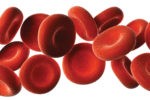March is National Colorectal Cancer Awareness Month

There are some facts that make the reason and continued need for raising awareness around a subject abundantly clear. This is especially true of the stark facts surrounding colorectal cancer. Colorectal cancer is the third leading cause of cancer death in the United States and it affects both men and women in almost equal numbers. Every year, about 140,000 Americans get colorectal cancer, and more than 50,000 people die from it. If that does not move it up the awareness priority list, this should: The disease is also highly preventable, treatable, and beatable when caught early. March is National Colorectal Cancer Awareness Month and we want to help stop it in its tracks.
Get Tested
Test avoidance is one of the biggest hurdles in the fight against this disease. Colorectal cancer is one of only a few cancers that can be prevented because, colorectal cancer screening, while can be uncomfortably revealing, allows doctors to find and remove hidden growths called “polyps” before they become cancer. Removing polyps can prevent cancer altogether.
Colon cancer screening tests can also detect cancer at an earlier, more treatable stage. Unfortunately, nearly half of all Americans are not getting the recommended screenings they need. Many deaths expected from colorectal cancer this year could be avoided with wider use of proven screening tests. While the tests may be uncomfortable, embarrassing, or scary, they are our superpower against this disease.
Getting a colonoscopy, which looks at the rectum and entire colon, is the generally preferred way to be screened and can mean end-of-story for colon cancer, cutting the odds of death by more than 50%. That should be motivation enough to be screened. Other approved methods include sigmoidoscopies, which look at the rectum and part of the colon and stool tests that detect blood in fecal matter. Studies show they can lower the number of colorectal cancer deaths by 15% to 33% in people ages 50 to 80 when done every 1 to 2 years. A recently FDA approved stool DNA test is also available but its benefits have not yet been proven yet.

It’s Not Too Early to Think About It
The risk of developing colorectal cancer increases with advancing age. More than 90 percent of cases occur in people aged 50 or older. But it’s not an “older adult’s” disease. According to the American Cancer Society (ACS), there has been a 51% increase in colorectal cancer among those under age 50 since 1994. New cases of colorectal cancer in adults younger than 55 have increased by almost 2% every year since the mid-1990s, and death rates in this age group are also rising, even though colonoscopies are more common. Astonishingly, more than 16,000 people younger than 50 are currently diagnosed with the disease every year. There are 45 new cases each day and 3,600 —10 per day — die from the disease. Additionally concerning is that some studies show that younger people diagnosed have more aggressive cancer with worse prognoses. When discovered, the disease is generally more advanced at stage III or IV in younger people too, which may be a result of the difficulty and decreased likelihood of getting diagnosed when you’re younger than 50. When a young person exhibits symptoms such as blood in the stool, bleeding from the rectum, or stomach cramps, most doctors are not immediately thinking of colorectal cancer.
Recent findings show similar concerning trends across other higher-income nations and suggest early life exposures may be a contributing factor. A recent study found that during the 10-years leading up until 2014, the incidence of colon cancer in people up to 49 years old rose significantly each year in Denmark (by 3.1%), New Zealand (2.9%), Australia (2.9%), and the U.K. (1.8%). Researchers also found significant increases in the annual incidence of rectal cancer in this age group in Canada (by 3.4%), Australia (2.6%), and the U.K. (1.4%).
What Causes Colorectal Cancer?
Unfortunately, the exact cause of colorectal cancer is yet unknown. There are, however, certain risk factors linked to the disease including age, race, diet, and the use of tobacco and alcohol. Knowing your family history is also key to getting diagnosed. The general population has about a 4% lifetime risk of getting colorectal cancer. That can rise to 80% for people with the inherited Lynch syndrome and to 100% for familial adenomatous polyposis or FAP, both genetic mutations. Still, these associations do not explain the diagnosis for all patients, making screening even more important in catching and fighting the disease.
The Fight is On!
Today, researchers are working to advance our understanding of how to prevent, detect, and treat colorectal cancer. Currently, the most common treatment is the surgical removal of the cancer. Additional standard treatments include chemotherapy, radiation, targeted therapy, radiofrequency ablation, and cryosurgery.
As our understanding of the disease progresses, so too the advances in this disease. Recently, researchers discovered that almost all colorectal cancers seem to express a molecule called GUCY2C. This breakthrough discovery has led to the development of a new colorectal cancer vaccine. The vaccine which is currently in Phase I human trials stimulates a patient’s immune system to attack and destroy the cancer. The first trial of the vaccine was primarily designed to establish a safety profile for the treatment. Ten patients, with either stage I or II colon cancer, were administered a single shot of the vaccine and followed up for six months. The results were positive, with no serious adverse effects reported. These promising results have paved the way for larger human trials.
While much work needs to be done, researchers are making incredible advances in our understanding of the disease. As that work continues, it is up to all of us to help advance the cause by promoting awareness.
FOR MORE INFORMATION
National Cancer Institute: https://www.cancer.gov/types/colorectal/research





